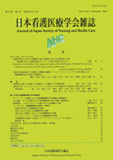Japanese
English
- 有料閲覧
- Abstract 文献概要
- 参考文献 Reference
Abstract
【Background】
Stigma is major factor that inhibits the recovery of a person with mental illness. Measures of stigma should include both public- stigma and self-stigma. However, there are few studies of self-stigma in persons with mental illness in Japan. One reason for the lack of studies is the absence of a standardized self-stigma scale.
【Objective】
This study aimed to develop a Japanese version of the Self-Stigma of Mental Illness Scale(SSMIS) nd to examine its reliability and validity.
【Methods】
We performed a cross-sectional survey of persons with mental illness. Study subjects were from 12 rehabilitation centers for people with mental disabilities(day-care centers, workshops, and psychiatric clinics) in a prefecture in the Chubu District in Japan from which we could obtain permission. We recruited the study subjects from the whole range of mental illness. The questionnaire consisted of the Japanese version of the SSMIS and included translation, back-translation, and a preliminary investigation of the scale. Internal consistency, test-retest reliability, construct validity, and criterion-related validity were examined.
【Results and Conclusion】
We received responses from 138 participants. The Japanese SSMIS was found to have satisfactory reliability (Cronbach's α coefficient=.82-.94; intraclass correlation coefficient=.56-.76).
With respect to construct validity, Japanese version of Stereotype Awareness Subscale differs from the original version and is correlated to the other scales. However, the original and Japanese versions of other subscales showed similar patterns of correlation. Both the original and Japanese SSMIS had similar levels of criterion-related validity. On the basis of these results, we believe that the Japanese SSMIS has adequate reliability and validity. However, there is still room for further examination of the construct of some factors.
Abstract
【Background】
Stigma is major factor that inhibits the recovery of a person with mental illness. Measures of stigma should include both public- stigma and self-stigma. However, there are few studies of self-stigma in persons with mental illness in Japan. One reason for the lack of studies is the absence of a standardized self-stigma scale.
【Objective】
This study aimed to develop a Japanese version of the Self-Stigma of Mental Illness Scale(SSMIS) and to examine its reliability and validity.
【Methods】
We performed a cross-sectional survey of persons with mental illness. Study subjects were from 12 rehabilitation centers for people with mental disabilities(day-care centers, workshops, and psychiatric clinics) in a prefecture in the Chubu District in Japan from which we could obtain permission. We recruited the study subjects from the whole range of mental illness. The questionnaire consisted of the Japanese version of the SSMIS and included translation, back-translation, and a preliminary investigation of the scale. Internal consistency, test-retest reliability, construct validity, and criterion-related validity were examined.
【Results and Conclusion】
We received responses from 138 participants. The Japanese SSMIS was found to have satisfactory reliability (Cronbach's α coefficient=.82-.94; intraclass correlation coefficient=.56-.76).
With respect to construct validity, Japanese version of Stereotype Awareness Subscale differs from the original version and is correlated to the other scales. However, the original and Japanese versions of other subscales showed similar patterns of correlation. Both the original and Japanese SSMIS had similar levels of criterion-related validity. On the basis of these results, we believe that the Japanese SSMIS has adequate reliability and validity. However, there is still room for further examination of the construct of some factors.
Copyright © 2014, Japan Society of Nursing and Health Care All rights reserved.


